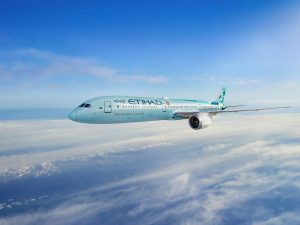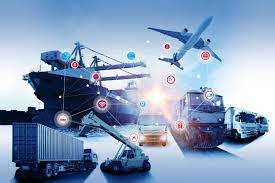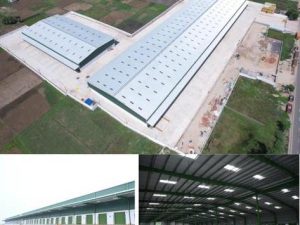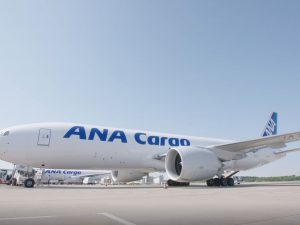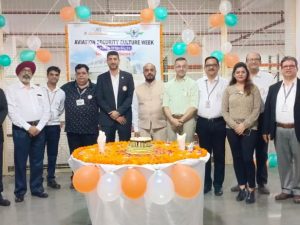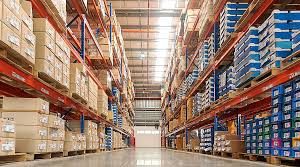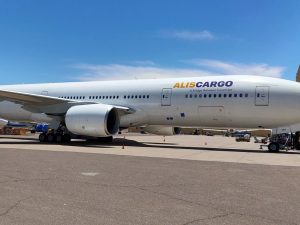National Airlines, a division of National Air Cargo Group, has entered an interline agreement with Middle East’s Etihad Cargo to successfully roll out the ICAIR23 programme for the United States Postal Service (USPS). This agreement initiates a unique partnership, as it combines National’s extensive experience in providing international freight transportation services with Etihad Cargo’s global commercial network. Under phase 1 of the ICAIR23 programme, National Airlines with P1 preferences will dispatch USPS civilian, military, and diplomatic mail using the scheduled services of Etihad Cargo across several awarded lanes for the period 2023 -2027. “We are looking forward to this association and hope to provide best-in-class mail delivery experiences to customers around the world through this programme”, commented Christopher Alf, Chairman, National Air Cargo Group in a release. Tim Isik, Vice President, Commercial at Etihad Cargo, said, “Etihad Cargo is committed to making the transportation of mail across the carrier’s network as seamless and efficient as possible. Etihad Cargo’s partnership with National Air Cargo Group will enable the two airlines to join forces to enhance international USPS mail deliveries, providing greater connectivity to destinations across Etihad Cargo’s global network, and provide customers with an efficient service.”
Read More »LogiNext launches AI-enabled payment module to enhance operations
LogiNext introduced an AI-enabled payment module, focused towards offering convenience to the enterprises in making better decisions while choosing their carrier partners for smoother and cost-efficient deliveries. The new feature is aimed ultimately at creating a revenue model that is suitable for everyone in the logistics chain using a smarter costing strategy with the power of automation. The platform offers the facility to compare charges of various carriers and drivers at a single place so that enterprises make an informed choice on picking the best one from the lot. With the help of AI enabled and automated rate charts, LogiNext eliminates the manual intervention required for making such decisions. It also prioritizes various essential factors such as product specifications, distance of delivery, discounts, reattempts made and more.
Read More »FFFAI’s 15th EC focused on multimodal logistics in NE
To emphasize on multimodal logistics operations in Northeastern Region and for connecting with the neighboring Southeast Asian countries and Bangladesh, Bhutan & Nepal utilizing cost-effective land/multimodal transportation routes, the Federation of Freight Forwarders’ Associations in India (FFFAI) held its 15th Executive Committee (EC) Meeting on August 4 and 5, 2023 in Kolkata. Hosted by Calcutta Customs House Agents Association (CCHAA), the meeting also focused on opportunities and challenges of utilizing inland waterways and surface transports. The EC Meeting was attended by the Office Bearers and members. Customs Brokers from Guwahati and Shillong regions were also invited to exchange ideas on the potential of this region from the interest of EXIM trade, Customs Brokers, Freight Forwarding and logistics industry. According to Shankar Shinde, Chairman, FFFAI, considering the huge importance of the untapped Northeast Region, the Federation would expand its network and strengthen activities in this region to facilitate the EXIM trade, in line with the endeavour of the present Government by creating conducive policies and setting up of required infrastructure for multimodal logistics operations. Other major topics discussed in the 15th EC Meeting of FFFAI were related to Customs, GST, Ports & Sea Freight, Airport & Airfreight, ICDs, etc. Dissemination of information through various media/channels was also discussed with adequate emphasis. .
Read More »Asia Shipping wins Best Air Freight Forwarding Company award
Asia Shipping International Transport Pvt Ltd wins Best Air Freight Forwarding Company award at the recently concluded India Cargo Awards in New Delhi. Piyush Srivastava, IES, Senior Economic Advisor graced the occasion as the Chief Guest. Known as the “Oscars of the Cargo Industry,” the India Cargo Awards 2023 hosted by Cargo Talk (DDP Group Publication) serves as an all-India platform created with a vision to recognise excellence in the Cargo-Freight-Logistics Industry across various domains, including Rail, Road, Air, Sea, Allied Services, Warehousing, Technology, 3rd Party Logistics, and more. Our world-class awards ceremonies are known for their formal Black-Tie affair, filled with glitz and glamour, attended by the most influential personalities in the Cargo Industry.
Read More »Safexpress opens multimodal logistics park in Bihar
Safexpress has unveiled its groundbreaking logistics park in Patna, Bihar. As the largest logistics park in Bihar, this state-of-the-art facility is set to revolutionize the logistics industry, driving seamless trade operations and unlocking immense business potential in the region. Spanning across an expansive area of 5.25 lakh square feet, the logistics park offers unparalleled infrastructure and capabilities. Its key highlights include 130 feet wide cross-dock facility, strategically located on the Patna-Bakhtiyarpur National Highway 30, Fatuha, and just 40 km away from the Jay Prakash Narayan International (JPNI) airport. This prime location ensures convenient access and efficient transportation for businesses operating in and out of Bihar. Designed to withstand all weather conditions, the park features a 16 feet wide cantilever shed, guaranteeing 100% operational reliability. Additionally, an 80 feet concrete truck docking road has been constructed to facilitate smooth truck movement within the premises. With dedicated docking facilities for 135 trucks, the park ensures swift loading and unloading operations, streamlining logistics processes. This significant investment by Safexpress signifies a major milestone for trade and commerce in Bihar. The region, known for its agricultural prowess and status as an important business center, is poised to experience exponential growth in logistics operations. Safexpress’ largest logistics park in Patna will serve as a catalyst, facilitating the seamless transportation of packaged goods and fostering increased trade opportunities for businesses across Bihar.
Read More »ANA launches PRIO FRESH solution for perishable airfreight
Japanese carrier ANA Cargo (the freight arm of All Nippon Airways) has begun offering its new PRIO FRESH service for international perishable airfreight transport on flights from Haneda, Narita, Kansai, Fukuoka, Nagoya and Chitose airports. PRIO FRESH is part of the airline’s PRIO portfolio of value-added services for international cargo. Customers could already opt for thermal blankets to protect cargo (excluding shipments travelling on Boeing 737 and Airbus A320 flights) from high ambient temperatures such as those that occur on a sunny ramp. Now, ANA customers can also book temperature-controlled trucks on domestic road feeder services. In addition, the option of traceability during transit on some routes (Haneda–Hong Kong and Singapore) is now available under the new PRIO FRESH banner, through the provision of timestamp information for each handover point on the route. In July this year, ANA became the first Japanese airline to receive IATA CEIV Fresh certification. The airline was awarded CEIV Pharma certification in 2017.
Read More »Continental Carriers conducts Aviation Security culture week
Continental Carriers Pvt Ltd (CCPL) observed the Aviation Security Culture week (31st July to 5th August 2023), in compliance with the Bureau of Civil Aviation Security (BCAS) guidelines. The event was organized at Continental Air Freight Station, newly established at Kapashera, Delhi, near IGI Airport, on 3rd August 2023. CCPL organized various activities to raise awareness among its officials about the security procedures concerning cargo and personnel movement, as well as the access control process. During the event, the CCPL staff had the opportunity to familiarize themselves with the security equipment used at the Continental Air Freight Station. This awareness program aimed to enhance the employees’ understanding of the critical role security plays in the aviation and logistics industry. The event commenced with an inauguration by Shri Vaibhav Vohra, Managing Director – Continental Carriers Pvt Ltd. A solemn pledge-taking ceremony followed, affirming the commitment of all participants to prioritize and uphold aviation security. In his address, Shri Vaibhav Vohra emphasized the paramount importance of security in the current scenario, emphasizing its significance for both the Civil Aviation and Logistics sectors. By celebrating the Aviation Security Culture week, Continental Carriers Pvt Ltd demonstrated its unwavering dedication in maintaining the highest standards of security and safety in its operations, ensuring a trustworthy and reliable service for its clientele, thereby reinforcing its position as a responsible and reliable logistics company.
Read More »NLDS wins ‘Best Digital Initiative Logistics – ULIP’
NICDC Logistics Data Services (NLDS) was honored with ‘Best Digital Initiative Logistics – ULIP’ award at the recently held India Cargo Awards in New Delhi. Piyush Srivastava, IES, Senior Economic Advisor, MOCA presented the award. Known as the “Oscars of the Cargo Industry,” the India Cargo Awards 2023 hosted by Cargo Talk (DDP Group Publication) serves as an all-India platform created with a vision to recognise excellence in the Cargo-Freight-Logistics Industry across various domains, including Rail, Road, Air, Sea, Allied Services, Warehousing, Technology, 3rd Party Logistics, and more. Our world-class awards ceremonies are known for their formal Black-Tie affair, filled with glitz and glamour, attended by the most influential personalities in the Cargo Industry.
Read More »Lucknow becomes key logistics hub for e-com giants
Lucknow is emerging as a key industrial and logistics hub in North India after Delhi-NCR as the warehousing sector is estimated to generate 70,000 direct employment opportunities over the next five years, according to property consultant CBRE. In a statement, CBRE South Asia said that Lucknow region has witnessed about Rs 400 crore of investment by leading players like Amazon, Mondelez and Flipkart in the last five years, and an additional Rs 70 crore investment is expected in the development of warehouses in the city. The demand for quality warehousing space has consistently grown in Lucknow over the past five years and attained record levels in FY23, the consultant said. The total leasing of warehousing space in Lucknow region in 2022-23 stood at 0.18 million square feet from 0.11 million square feet in the previous year. Currently, the Lucknow region has a total of 5.2 million square feet of warehouse stock with about 1.4 million square feet of Grade A supply in the pipeline on the Lucknow-Kanpur highway cluster. “The capital city of Uttar Pradesh is one of the most important consumption markets in the state and is strategically located with seamless access to East, West, and Central India, emerging as one of the largest logistics hubs of Northern India,” CBRE said.
Read More »MSC acquires majority stake in AlisCargo Airlines
MSC has acquired a majority stake in Milan-based airfreight carrier AlisCargo Airlines. The acquisition follows MSC’s confirmation last month that it was in talks with the cargo airline, as it continues to develop its air cargo operations. This deal initiates a 100% takeover set to take place at the beginning of 2024, when AlisCargo will restart operations with the delivery of a Boeing 777 freighter, says release. The carrier is the only Italian airline dedicated entirely to the intercontinental transport of goods; it received its AOC in July 2021 and its first commercial flight took place between Milan Malpensa and Jinan on August 18, utilising a B777-200 in a preighter configuration. Aliscargo took delivery of three further B777-200 preighter aircraft with the aim of expanding its operations – but preighter operations became less and less viable after the pandemic, and the airline’s operating licence was suspended earlier this year.
Read More » Cargo Breaking News
Cargo Breaking News
